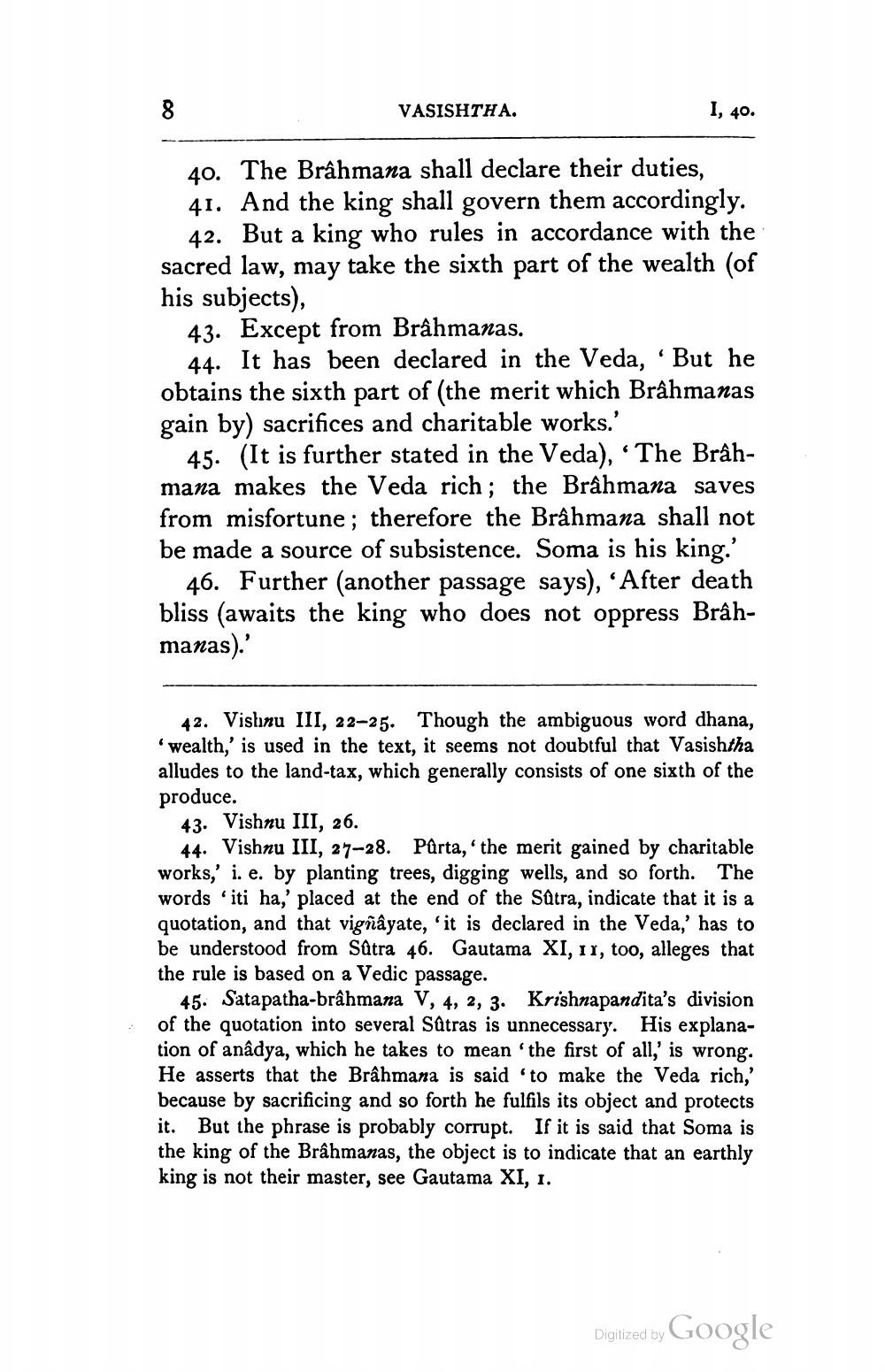________________
VASISHTHA.
I, 40.
40. The Brâhmana shall declare their duties, 41. And the king shall govern them accordingly.
42. But a king who rules in accordance with the sacred law, may take the sixth part of the wealth (of his subjects),
43. Except from Brâhmanas.
44. It has been declared in the Veda, 'But he obtains the sixth part of (the merit which Brâhmanas gain by) sacrifices and charitable works.'
45. (It is further stated in the Veda), “The Brâhmana makes the Veda rich; the Brâhmana saves from misfortune; therefore the Brâhmana shall not be made a source of subsistence. Soma is his king.'
46. Further (another passage says), ‘After death bliss (awaits the king who does not oppress Brâhmanas).'
42. Vishnu III, 22-25. Though the ambiguous word dhana, 'wealth,' is used in the text, it seems not doubtful that Vasishtha alludes to the land-tax, which generally consists of one sixth of the produce.
43. Vishnu III, 26.
44. Vishnu III, 27-28. Pârta, the merit gained by charitable works,' i. e. by planting trees, digging wells, and so forth. The words'iti ha,' placed at the end of the Satra, indicate that it is a quotation, and that vigñâyate, 'it is declared in the Veda,' has to be understood from Sätra 46. Gautama XI, 11, too, alleges that the rule is based on a Vedic passage.
45. Satapatha-brâhmana V, 4, 2, 3. Krishnapandita's division of the quotation into several Sätras is unnecessary. His explanation of anâdya, which he takes to mean the first of all,' is wrong. He asserts that the Brâhmana is said to make the Veda rich,' because by sacrificing and so forth he fulfils its object and protects it. But the phrase is probably corrupt. If it is said that Soma is the king of the Brâhmanas, the object is to indicate that an earthly king is not their master, see Gautama XI, 1.
Digitized by Google




